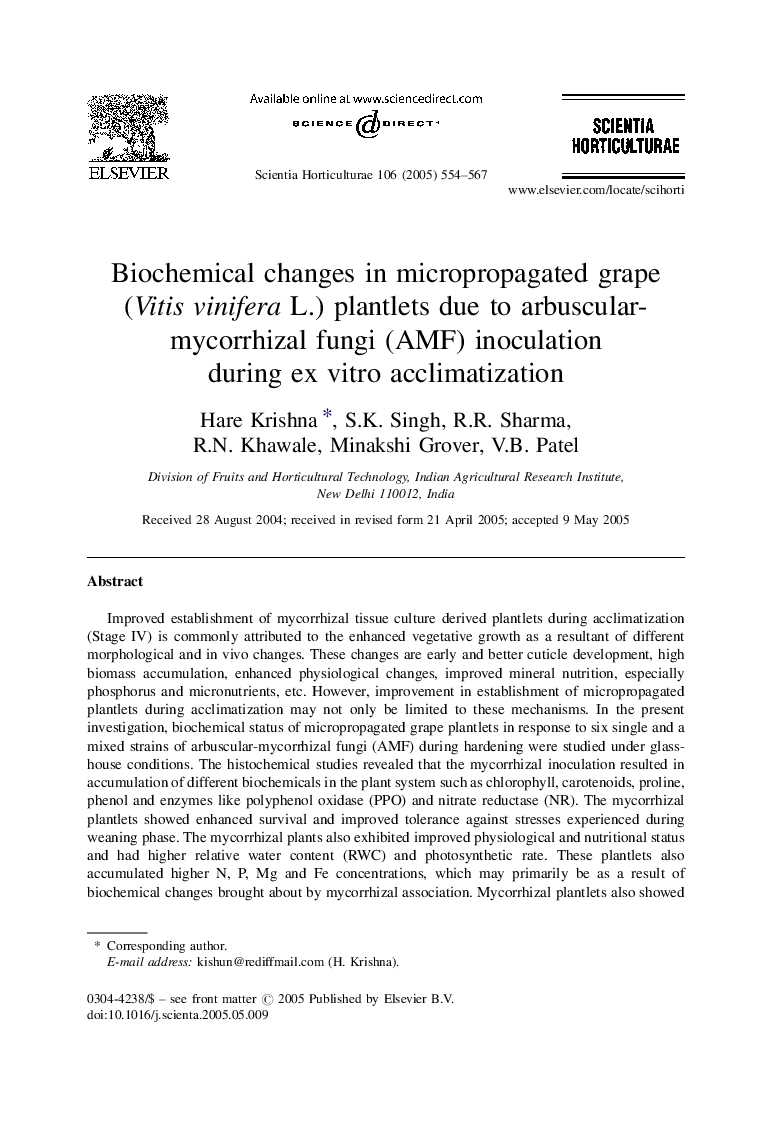| Article ID | Journal | Published Year | Pages | File Type |
|---|---|---|---|---|
| 9488749 | Scientia Horticulturae | 2005 | 14 Pages |
Abstract
Improved establishment of mycorrhizal tissue culture derived plantlets during acclimatization (Stage IV) is commonly attributed to the enhanced vegetative growth as a resultant of different morphological and in vivo changes. These changes are early and better cuticle development, high biomass accumulation, enhanced physiological changes, improved mineral nutrition, especially phosphorus and micronutrients, etc. However, improvement in establishment of micropropagated plantlets during acclimatization may not only be limited to these mechanisms. In the present investigation, biochemical status of micropropagated grape plantlets in response to six single and a mixed strains of arbuscular-mycorrhizal fungi (AMF) during hardening were studied under glasshouse conditions. The histochemical studies revealed that the mycorrhizal inoculation resulted in accumulation of different biochemicals in the plant system such as chlorophyll, carotenoids, proline, phenol and enzymes like polyphenol oxidase (PPO) and nitrate reductase (NR). The mycorrhizal plantlets showed enhanced survival and improved tolerance against stresses experienced during weaning phase. The mycorrhizal plants also exhibited improved physiological and nutritional status and had higher relative water content (RWC) and photosynthetic rate. These plantlets also accumulated higher N, P, Mg and Fe concentrations, which may primarily be as a result of biochemical changes brought about by mycorrhizal association. Mycorrhizal plantlets also showed better hardening under glasshouse conditions. The result suggests that the biochemical changes brought about by mycorrhization were helpful in mitigating different stresses experienced by the tissue culture plants during hardening, which determine their performance later in field.
Related Topics
Life Sciences
Agricultural and Biological Sciences
Horticulture
Authors
Hare Krishna, S.K. Singh, R.R. Sharma, R.N. Khawale, Minakshi Grover, V.B. Patel,
